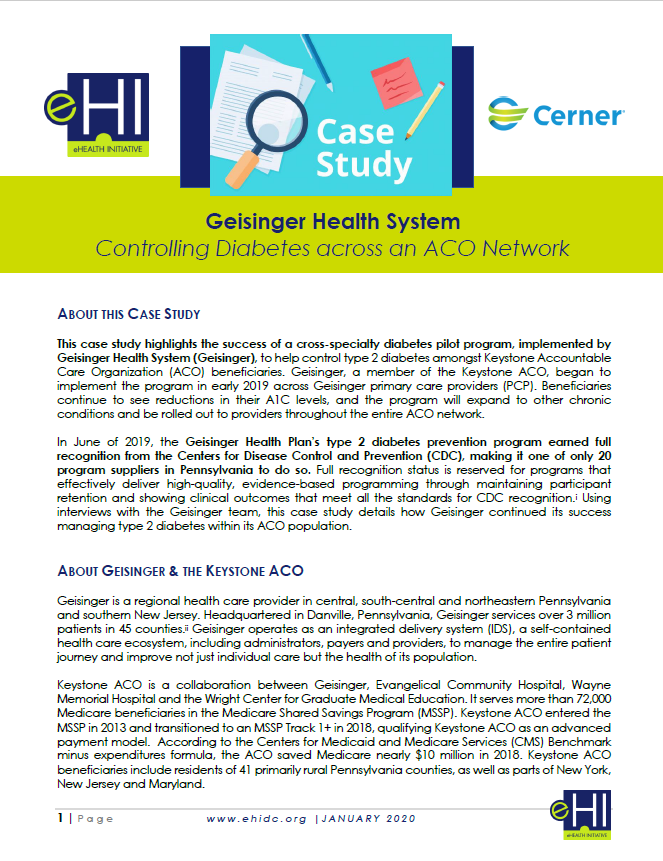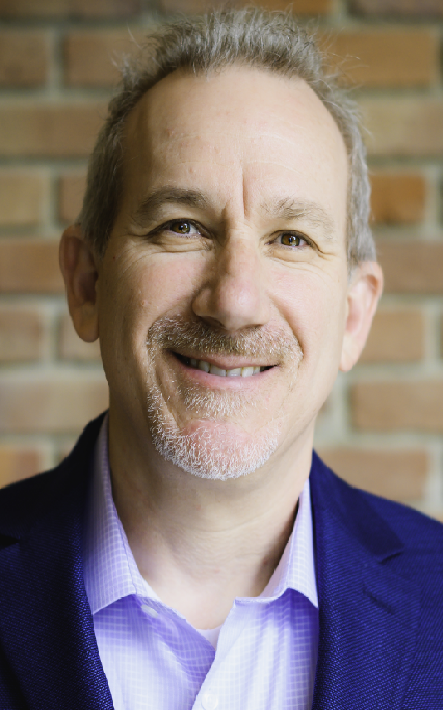U.S. Health Care from a Global Perspective, 2019: Higher Spending, Worse Outcomes?
U.S. Health Care from a Global Perspective, 2019: Higher Spending, Worse Outcomes?
This analysis is the latest in a series of Commonwealth Fund cross-national comparisons that uses health data from the Organisation for Economic Co-operation and Development (OECD) to assess U.S. health care system spending, outcomes, risk factors and prevention, utilization, and quality, relative to 10 other high-income countries: Australia, Canada, France, Germany, the Netherlands, New Zealand, Norway, Sweden, Switzerland, and the United Kingdom. We also compare U.S. performance to that of the OECD average, comprising 36 high-income member countries.
The full Commonwealth Fund analysis can be viewed at this link.
Thinking Beyond The Rebate Debate: Strategies To Bring Value To Healthcare
Thinking Beyond The Rebate Debate: Strategies To Bring Value To Healthcare
The Trump administration may have dropped the drug rebate rule last year, but the American people haven’t given up their search for security.
Healthcare is a $3.5 trillion industry projected to balloon even more in the next decade and consumers are finally saying “enough is enough.” They’re speaking out against unsustainable costs and directing a sizable portion of their frustration toward the pharmaceutical industry. Eight in ten Americans now say prescription drug prices are “unreasonable,” as pharma scrambles to build a legislative firewall by putting significant sums of money behind candidates who will protect their interests.
As we move closer to the 2020 presidential election, the voices calling for change will only get louder. And as a result, the need to introduce new strategies to lower all healthcare costs will only become more critical.
The full Forbes article can be viewed at this link.
Geisinger Health System Case Study: Controlling Diabetes across an ACO Network
 This case study highlights the success of a cross-specialty diabetes pilot program, implemented by Geisinger Health System (Geisinger), to help control type 2 diabetes amongst Keystone Accountable Care Organization (ACO) beneficiaries. Geisinger, a member of the Keystone ACO, began to implement the program in early 2019 across Geisinger primary care providers (PCP). Beneficiaries continue to see reductions in their A1C levels, and the program will expand to other chronic conditions and be rolled out to providers throughout the entire ACO network.
This case study highlights the success of a cross-specialty diabetes pilot program, implemented by Geisinger Health System (Geisinger), to help control type 2 diabetes amongst Keystone Accountable Care Organization (ACO) beneficiaries. Geisinger, a member of the Keystone ACO, began to implement the program in early 2019 across Geisinger primary care providers (PCP). Beneficiaries continue to see reductions in their A1C levels, and the program will expand to other chronic conditions and be rolled out to providers throughout the entire ACO network.
In June of 2019, the Geisinger Health Plan’s type 2 diabetes prevention program earned full recognition from the Centers for Disease Control and Prevention (CDC), making it one of only 20 program suppliers in Pennsylvania to do so. Full recognition status is reserved for programs that effectively deliver high-quality, evidence-based programming through maintaining participant retention and showing clinical outcomes that meet all the standards for CDC recognition. Using interviews with the Geisinger team, this case study details how Geisinger continued its success managing type 2 diabetes within its ACO population.
Why Aspiring Entrepreneurs Are Interested In Value-Based Medicine
Why Aspiring Entrepreneurs Are Interested In Value-Based Medicine
Healthcare is a thriving market when it comes to business. Most people might think the industry is only for doctors and nurses, or other people with medical backgrounds, but this is not the case. The healthcare sector is an amazing opportunity for aspiring entrepreneurs from all walks of life and experience. It presents an incredible chance for someone to genuinely help people and make plenty of money at the same time.
The reason healthcare is attractive to aspiring entrepreneurs can be attributed in part to the recent government overhaul in the industry. The Centers for Medicaid Services (CMS) transitioned from fee-for-service to value-based care. It’s a game-changer not only for patients, but also for entrepreneurs who have a knack for customer service, are experts at efficiency and strive to provide quality.
The full Forbes article can be viewed at this link.
Webinar Presentation- Identifying and quantifying the impact of social determinants of health
Whether you’re a payer, provider or government entity, social determinants are a critical component of healthcare and pharmaceuticals in the twenty-first century. Social determinants of health—or the social, economic and environmental factors of where we live and work such as social isolation, economic inequality, pollution and food deserts—are preventing too many people across the globe from living healthy lives.
In this webcast a panel of health experts will examine insights from PwC’s recent report: Action required: The urgency of addressing social determinants of health. The report leverages research and fieldwork, including a global survey of more than 7,900 people across 8 countries, interviews with healthcare organization leaders, analysis of more than 25 case studies, and input from our own health industries subject matter experts. All of this culminates into a PwC-perspective on how to succeed with a social determinants of health strategy.
Agenda:
- How to lead in social determinants of health: Five steps for bold action
- A deeper dive: Applying technology and data analytics to tackle social determinants of health
- Case study: Quantifying the health impact and ROI of Meals on Wheels - how Visiting Nurse Association (VNA) of Texas applied technology to quantify their program's impact
Speakers:
Benjamin Isgur - Health Research Institute Leader, PwC
 Ben leads PwC's Health Research Institute. In this role, he oversees thought leadership and research initiatives for the firm and clients. He also consults with healthcare systems, trade associations, and policy groups on strategic planning, and industry intelligence and trends. Ben is a published writer and his research is often cited by health leaders across the industry. In addition, he frequently speaks on a range of topics, including physician-hospital alignment, government policy, medical cost trends, consumerism, academic medicine and digital health. Ben received a master's degree from the LBJ School of Public Affairs at the University of Texas at Austin where he was a US Department of Defense fellow.
Ben leads PwC's Health Research Institute. In this role, he oversees thought leadership and research initiatives for the firm and clients. He also consults with healthcare systems, trade associations, and policy groups on strategic planning, and industry intelligence and trends. Ben is a published writer and his research is often cited by health leaders across the industry. In addition, he frequently speaks on a range of topics, including physician-hospital alignment, government policy, medical cost trends, consumerism, academic medicine and digital health. Ben received a master's degree from the LBJ School of Public Affairs at the University of Texas at Austin where he was a US Department of Defense fellow.
Chris Culak - Vice President, Chief of Strategy and Development, VNA Meals on Wheels
 Chris Culak joined VNA in October 2014, bringing with him more than 22 years of experience in fundraising and non-profit management. He came to VNA after implementing and managing programs for Dallas Children’s Advocacy Center, the National Audubon Society, Planned Parenthood, North Texas Food Bank and the American Heart Association. Chris holds a Bachelor of Science degree in Health Care Administration with a minor in Psychology from Texas State University in San Marcos. He and his wife Nichole live in the Oak Cliff area of Dallas with their daughter, Zoë, and son, Anders.
Chris Culak joined VNA in October 2014, bringing with him more than 22 years of experience in fundraising and non-profit management. He came to VNA after implementing and managing programs for Dallas Children’s Advocacy Center, the National Audubon Society, Planned Parenthood, North Texas Food Bank and the American Heart Association. Chris holds a Bachelor of Science degree in Health Care Administration with a minor in Psychology from Texas State University in San Marcos. He and his wife Nichole live in the Oak Cliff area of Dallas with their daughter, Zoë, and son, Anders.
Nine Experts On The Trends That Changed Healthtech In The Last Decade, And The Innovations To Expect By 2030
Nine Experts On The Trends That Changed Healthtech In The Last Decade, And The Innovations To Expect By 2030
As we enter 2020, it seems like a good moment to reflect on how technology has reshaped the way we think about, and deliver, healthcare in the last 10 years, and to look forward to the innovations that might transform our sector in the decade ahead.
I asked some of my peers to share their views on the biggest developments in digital health during the 2010s, and their predictions for what the 2020s will bring.
The full Forbes article can be viewed at this link.
Toward a Person-Centred Learning Health System: Understanding Value from the Perspectives of Patients and Caregivers
Toward a Person-Centred Learning Health System: Understanding Value from the Perspectives of Patients and Caregivers
What matters most to people who use healthcare? What matters to their caregivers? How do we use this information to support ongoing quality improvement in the healthcare system? In this paper, we explore three concepts from the current healthcare discourse, intended to drive health system improvements: person-centred care, value-based healthcare and learning health systems. We propose that key tenets from each of these concepts should be combined to create a person-centred learning health system (PC-LHS). We highlight two key points: First, in achieving a PC-LHS, the experiences, priorities and values of patients and their caregivers should be continually collected and fed into data systems to monitor ongoing quality improvement and performance benchmarking. Second, the information collected in determining value must include important contextual factors-- including the social determinants of health-- as patient health and well-being outcomes will ultimately be shaped by these factors, in addition to health system and disease factors. In summary, improving value for patients and caregivers, by capturing the things that matter most to them, within their life contexts, needs to be part of the continuous quality improvement cycle that lies at the heart of a learning health system.
The full article can be downloaded below.
The economy of connecting
The economy of connecting
Right now, patients don’t know their own strength. But as they wake up to their emerging role as keepers of their own healthcare data, the economic clout that comes with ownership will hand them a controlling stake in the new business models that are set to disrupt traditional financing across the sector.
Forecasts give a strong indication of the potential scale of that role – and the reasons why technology startups, insurers, providers and researchers are gearing up for the age of value-based health, in which patients will trade their data as currency, investing in their own care outcomes and the tools that will help to identify and realise them.
The full Healthcare IT News article can be viewed at this link.
Lyft Hails Major Hospital Partner In Sutter Health
Lyft Hails Major Hospital Partner In Sutter Health
The ride-sharing company Lyft and hospital giant Sutter Health are partnering to customize “individual transportation programs” for the hospital’s patients and health system employees throughout Northern California.
The deal announced Monday is significant for Lyft, which is tapping into a hospital industry that is under pressure to improve quality and reduce costs as health insurance payments move from fee-for-service medicine to value-based models. It’s all about getting healthcare in the right place, at the right time and in the right amount rather than fee-for-service reimbursement based on volume of care delivered so ride-sharing companies see a key role.
The full Forbes article can be viewed at this link.
‘Accountable Care’ And You: Better Care Delivery, Reduced Costs
‘Accountable Care’ And You: Better Care Delivery, Reduced Costs
Accountable care organizations (ACOs), a byproduct of the Affordable Care Act (ACA), were designed and deployed to better coordinate and manage the delivery of care and reduce healthcare costs to the system. Theoretically ACOs are “built” to manage patients on the care continuum to ensure that care is coordinated to deliver quality outcomes and better, lower-cost care. The care continuum would include, but is not limited to, multiple different players in healthcare, such as family practice/internal medicine clinicians, cardiologists, orthopods, hospitals, and skilled nursing facilities (SNFs).
The full Forbes article can be viewed at this link.
